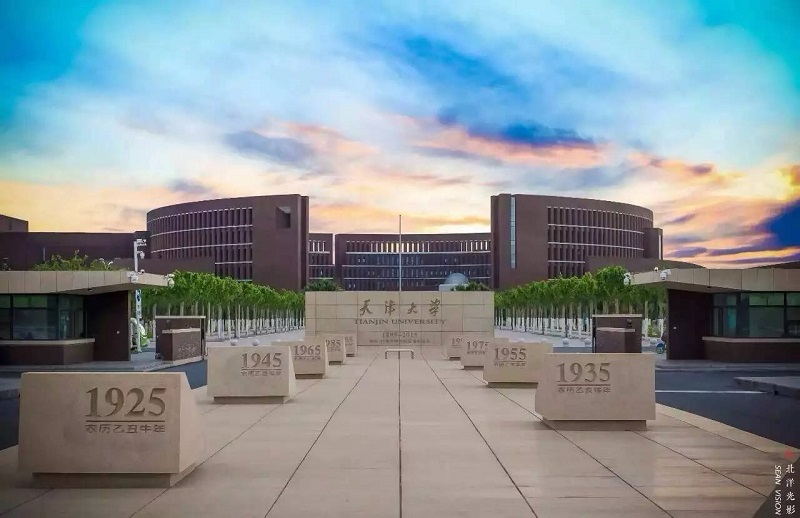
Recently, Tianjin University officially released the 2017 Graduate Employment Report. According to the report, as of December 29, 2017, the overall employment rate of 8249 graduates in 2017 was 98.59%, which remains sound and stable.
In recent years, the percentage of graduates going to key areas, such as national defense industries, large-scale state-owned enterprises, grassroots and other key industries and units has increased steadily in proportion to the total directly employed population (referred to as the “key rate”). The rate increased from 55.66 % in 2014 to 59.39% in 2017. Last year, a total of 496 graduates went to the Western areas and grass roots employment, including 217 undergraduate students, 253 Master’s degree holders and 26 Ph.D. graduates. Among them, the number of eligible and transferred students who work at the grass-roots level increased by 42.86%.
Geographically speaking, the employment distribution of 2017 graduates has a closer link with national policies and strategies such as the Guangdong-Hong Kong-Macau Greater Bay Area plan, the strategy of developing the Western part of China, the integration strategy of Beijing-Tianjin-Hebei region, the construction of the Xiong’an New Area as well as the Belt and Road initiative.
Among them, 55.89% graduates chose to work in Beijing, Tianjin and Hebei, making their contributions to the integration of Beijing, Tianjin and Hebei region and the construction of Xiong’an New Area. 6.37% graduates went to the Western region for employment and 2.93% graduates went to the three Northeastern provinces of China. Last year, 19.48% graduates went to East China with the Changjiang River Delta economic zone as the core.
A large number of outstanding graduates have been attracted by the promotion of Belt and Road Initiative. Among the graduates in 2017, 1,356 of them chose to work in 18 provinces and municipalities along the Belt and Road, accounting for 25.39 % of the total employed population, including 488 undergraduates, 781 master’s degree holders, and 87 doctoral students accounting for 28.62%, 24.50% and 19.42% of the total number of employed graduates respectively.
Among the graduates who were directly employed in various forms, the proportion of those who went to work in central enterprises and state-owned enterprises was 34.43%, of which 249 were employed to go to military units of National Defense, accounting for 14.03% of the employment in state-owned enterprises. Among the 2017 graduates, a total of 1,444 people entered the world’s top 500 enterprises, accounting for 27.01% of the number of direct employment in various forms, up 3 percentage points from last year.
434 undergraduate students were employed by enterprises such as the State Grid, China Construction, Huawei, China Communications Construction, China Unicom and Evergrande. 951 Master’s students entered enterprises such as the State Grid, Sinopec, the China Construction Bank, the Agricultural Bank, SAIC, China Mobile, SINOCHEM and the Aviation Industry Corporation of China. 59 doctoral students entered other enterprises such as the Power Construction Corporation of China, the China Shipbuilding Industry Corporation, the China Aerospace Science and Technology Corporation, Aerospace Science and Technology as well as the China Electronics Technology Group Corporation.
The Report shows that employers’ overall satisfaction with the graduates reached 97.49%, which indicates a high evaluation of graduates’ basic knowledge and learning ability. Compared with other college graduates employed by employer units, graduates of Tianjin University have obvious advantages in their professional foundation and learning ability.
Tianjin University has always encouraging graduates to consciously integrate personal development with the needs of the nation. In the past two years, more than 10 large enterprises, such as the China State Shipbuilding Corporation, the China Construction Second Engineering Bureau and the Second Institute of China Aerospace Science and Industry Corporation have signed talent training cooperation agreements with Tianjin University. Additionally, 20 units, such as the Jiangnan Shipyard Group and the China Academy of Engineering Physics have established internship practice bases with Tianjin University to guide students to understand the key needs of our nation.
By: Xu Hui
Editors: Sun Xiaofang and Ross Colquhoun






